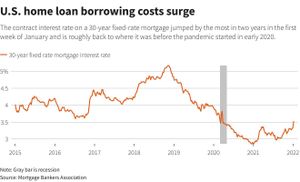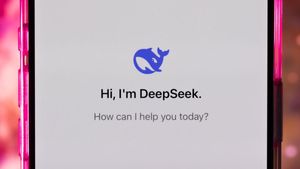DeepSeek, the budding Chinese AI startup, is under intense scrutiny following reports of its sensitive data being exposed through a security breach. According to cybersecurity firm Wiz Research, the company’s database was found to be publicly accessible, potentially compromising the privacy of its users and the integrity of the platform as a whole.
The researchers discovered the gaping security hole during their assessment of DeepSeek's external vulnerabilities, leading them to stumble upon an open and unauthenticated ClickHouse database, associated with the company. This exposed dataset allegedly contains not only chat histories but also secret keys, log times, internal application programming interface (API) endpoints, and operational metadata, all readily accessible without proper security measures.
DeepSeek’s prominence shot up dramatically upon the launch of its AI chatbot late last year, yet the subsequent data leak has raised alarms about the company’s cybersecurity protocols. Wiz Research's findings indicate over one million log entries were available, including timestamps and user interactions from as far back as January 6. This extensive leak could arm malicious actors with ample information to exploit software and server vulnerabilities. The firm claims this level of exposure poses significant risks to both DeepSeek and its end users.
The immediate aftermath of the leak has left many questions unanswered, including whether DeepSeek has reported this incident to the appropriate authorities or has taken steps to secure the disclosed information. The cybersecurity community remains watchful, hoping for prompt action to mitigate any potential fallout.
Interestingly, the chaos surrounding the data breach coincided with DeepSeek’s rapid ascent. Founded by Liang Wenfeng, formerly of the quantitative hedge fund High-Flyer, DeepSeek entered the market amid rising concerns over proprietary technology and competition within the AI sector. After facing setbacks with previous investments, Wenfeng pivoted to create the AI chatbot using Nvidia’s H800 chip, which the U.S. government had prohibited from being sold to Chinese entities due to fears over technological supremacy. This limitation forced DeepSeek to innovate under restrictive conditions, producing results akin to their U.S. counterparts, earning them recognition, but also skepticism about their capabilities.
Only weeks after launching, the company rattled the financial markets with claims of achieving significant efficiency breakthroughs. Investors, particularly those with stakes in Nvidia, found themselves suddenly on edge as Nvidia's stock experienced unprecedented volatility, dropping almost $1 trillion within 24 hours of DeepSeek’s rise. Notably, this dramatic shift marked Nvidia as having suffered the largest single-day loss on U.S. markets ever, only to recover swiftly, prompting reflections on the sustainability of such AI-driven investments.
Market analysts speculated on the root causes of this turmoil, with some attributing it to DeepSeek’s shattering dominance over download metrics on platforms like Apple’s app store. Others pointed to commentary from AI investors cautioning on Nvidia’s high valuations as being unsustainable amid intensifying competition.
Conditions become even more precarious when the broader concerns about Chinese tech companies are taken to account. Rabobank strategist Benjamin Picton raised questions about potential government interference, dubbing DeepSeek’s software “ChatCCP,” making reference to the clandestine data flows expected by users wary of privacy issues surrounding Chinese firms. The risk of data being surreptitiously analyzed by the Chinese government has lingered over discussions about DeepSeek and similar companies, potentially influencing investor relationships and national security evaluations.
Adding to the company’s plights, DeepSeek faced allegations of being susceptible to cyberattacks, especially from DDoS threats, as its technology drew significant server resource demands. Researchers like Aras Nazarovas highlighted DeepSeek’s older hardware reliance could have made it vulnerable to exploitation, especially considering the geopolitical tensions between the U.S. and China. This interplay complicates DeepSeek’s narrative of being merely innovative, spotlighting broader cybersecurity and regulatory dynamics.
Environmental forays haven’t fazed industry sentiment, as high-profile figures like former U.S. President Donald Trump commend DeepSeek’s rise as inspiration for American technology sectors. The consensus seems to be shifting, recognizing the competitive spirit ignited by DeepSeek’s success could yield positive advancements across the industry.
Several experts warn, nevertheless, of the need for regulatory frameworks to balance innovation with governance. Economist Shaun Rein voiced the urgency for governments to establish oversight protocols, to safeguard against the disruptive potential of AI technologies without stifling their growth potential. He labeled the rapid advancement as fraught with danger, calling for ethical implementations amid potential governmental data monitoring.
Overall, DeepSeek’s emergence resonates as both warning and inspiration within the AI domain, embodying the new technological race poised for the coming years, shaping industry standards and practices as it illuminates both vulnerabilities and opportunities for resilience moving forward.



